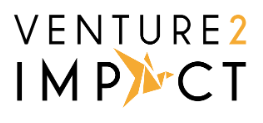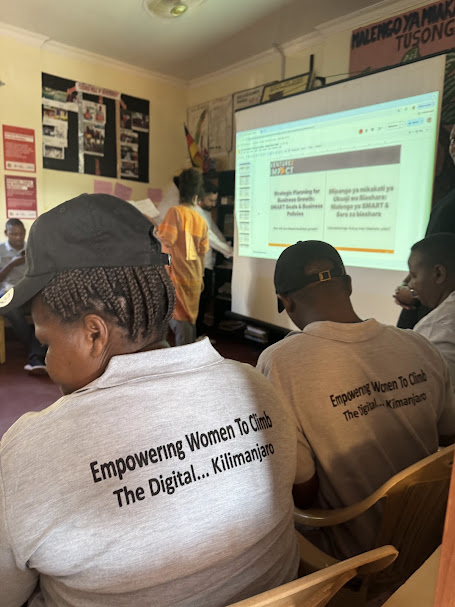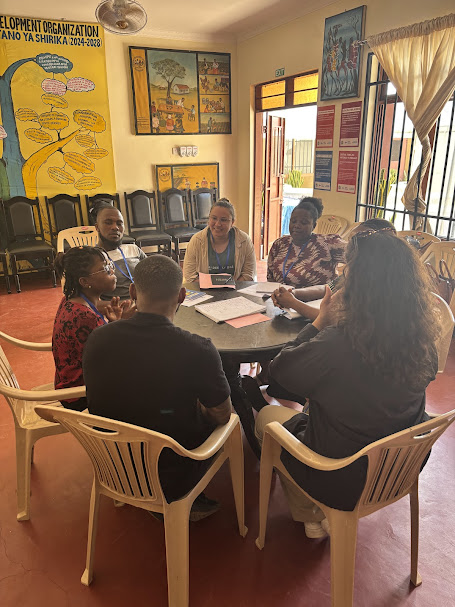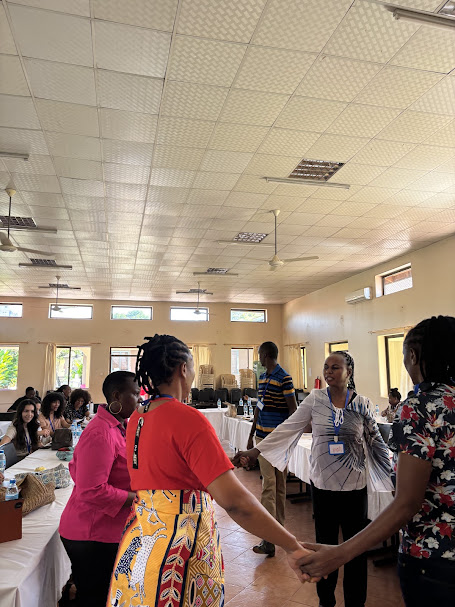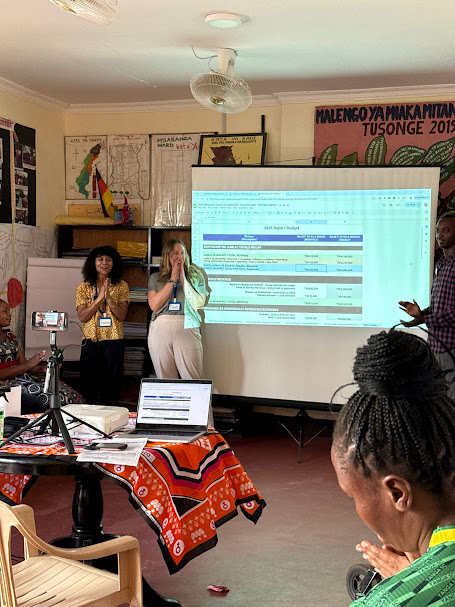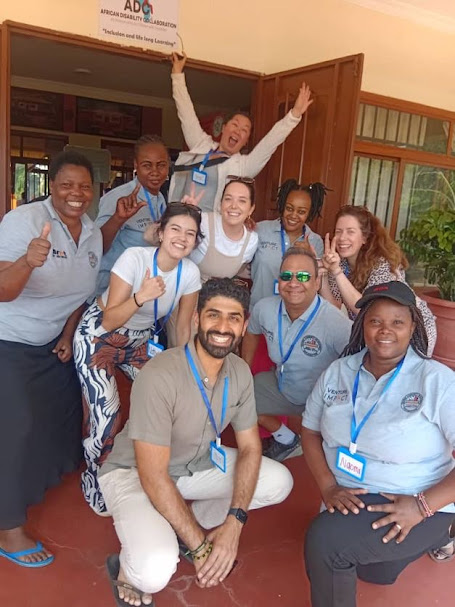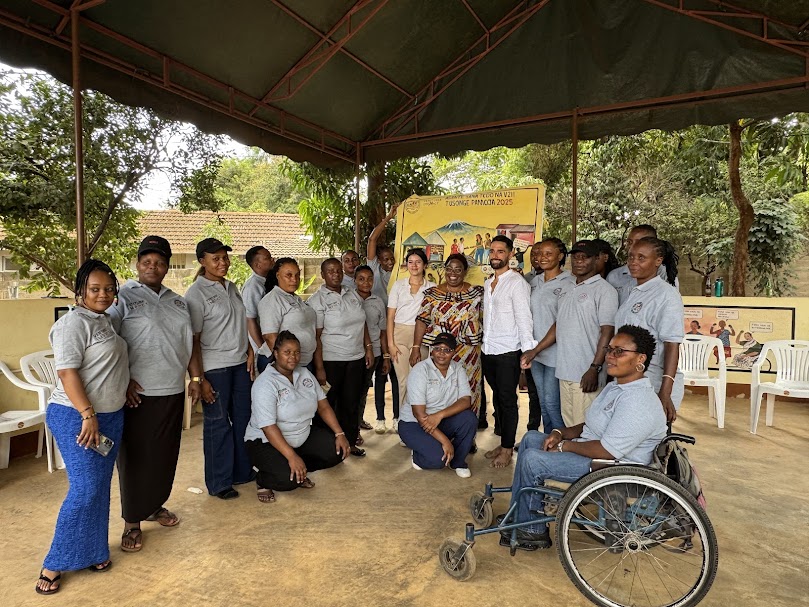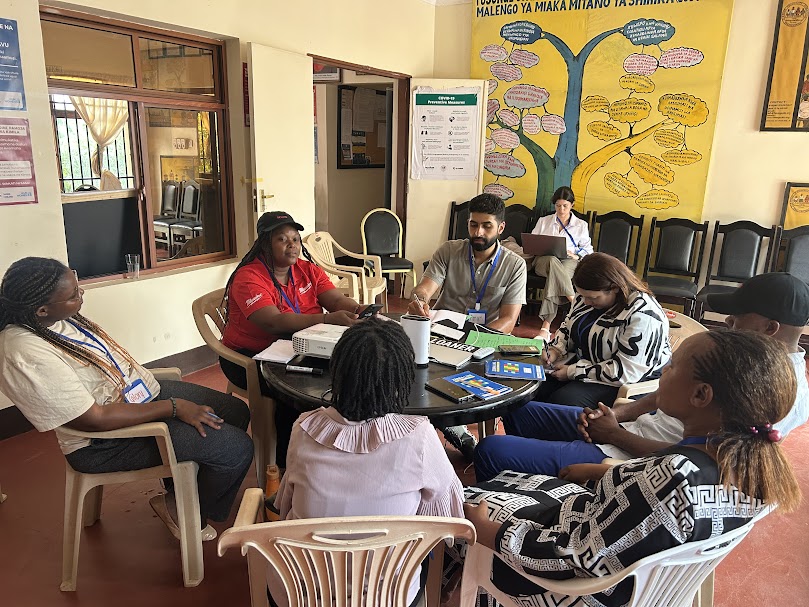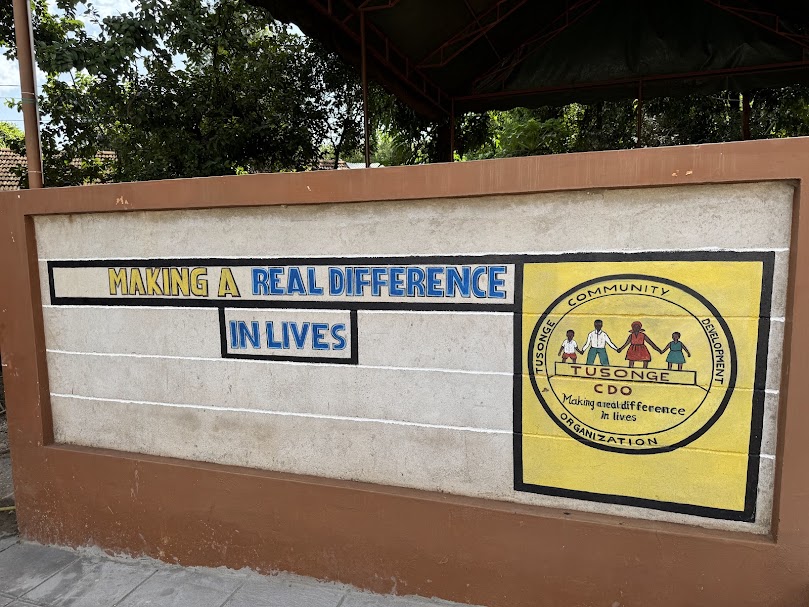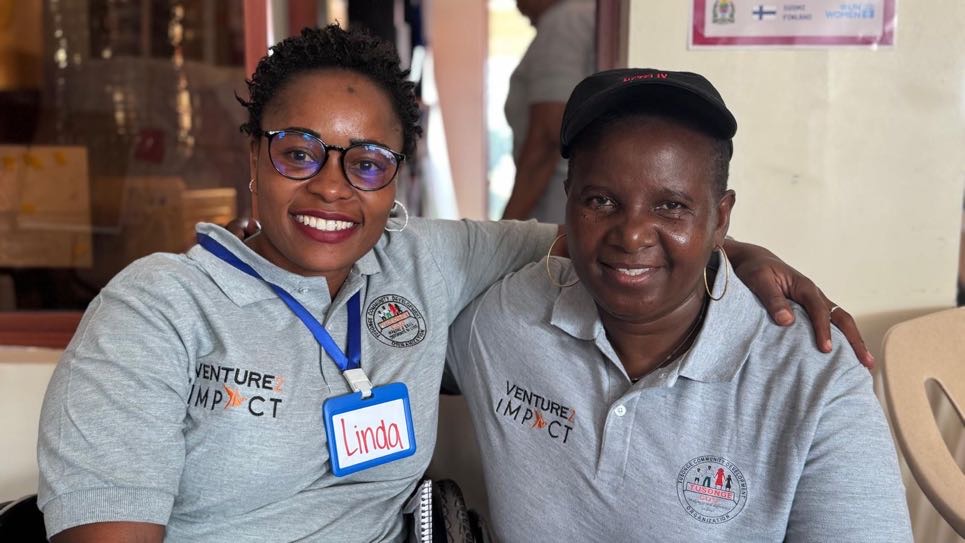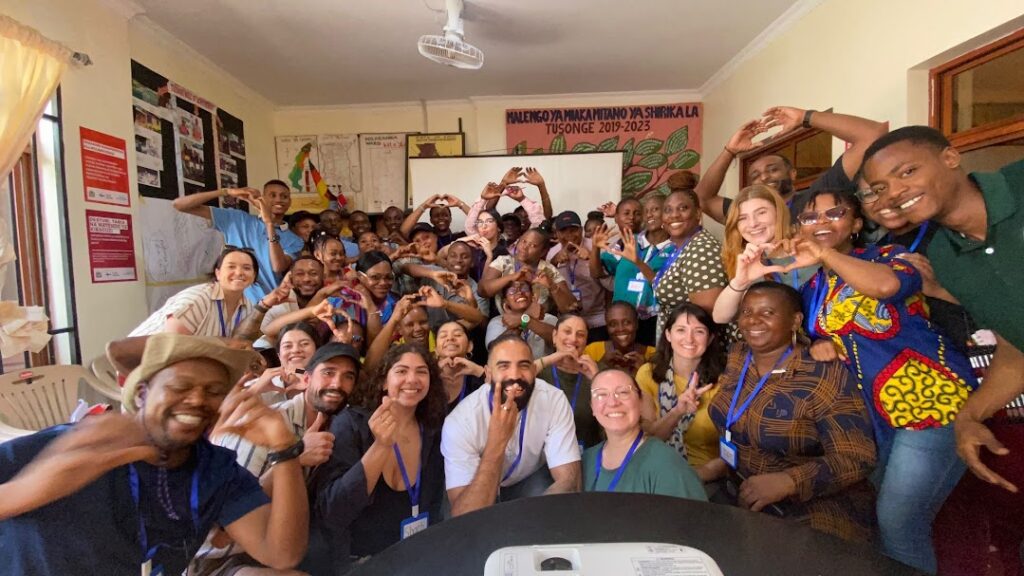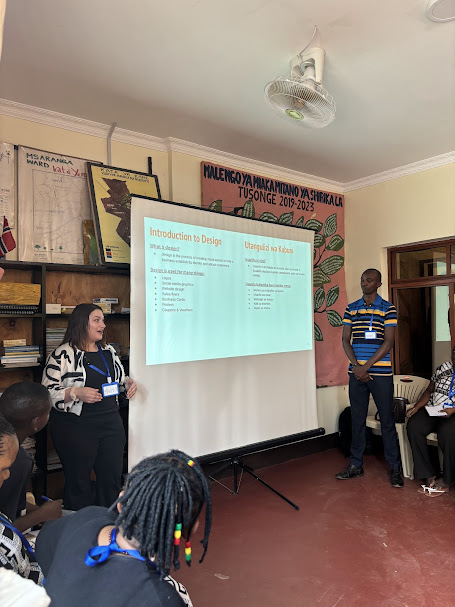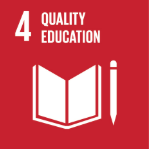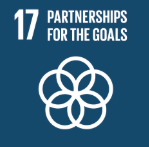
In February 2025, Venture 2 Impact (V2I) partnered with grassroots Tanzanian NGO TUSONGE to deliver a three-week Volunteer Alliance Program supporting entrepreneurs in Kilimanjaro through workshops and mentoring in finance, digital tools, communications, and leadership. Due to the program’s success, a follow-up initiative is planned for 2026.
Key outcomes included:
- 64% increase in IT knowledge
- 59% increase in confidence in social media strategy
- 55% increase in marketing confidence
- 51% increase in confidence among women entrepreneurs
- $226,000 USD in estimated staff time saved for TUSONGE
- 100% participant satisfaction rate
- 1,455 people projected to benefit over the next three years
THE CHALLENGE
In Kilimanjaro, Tanzania, local entrepreneurs are key to economic and community development but face major barriers like limited access to financing, business education, IT resources, and markets. Women are especially affected due to cultural norms and restricted financial independence. Infrastructure issues and regulatory hurdles further challenge business growth. TUSONGE supports entrepreneurs in rural areas across various sectors, though it also faces constraints like limited funding and policy challenges that impact its ability to sustain long-term support.
In that sense, the question we tackled was:
How can we support local entrepreneurs, located in Kilimanjaro, Tanzania, to overcome their critical barriers through educational workshops and one-on-one mentorship in business, marketing, social media, finance, and technology?
PARTNERSHIP ORIGIN: From Shared Values to Shared Impact
Tusonge means “let’s advance” or “move forward together” in Swahili—an idea that became reality through our collaboration in Tanzania. TUSONGE is a Tanzanian NGO rooted in the grassroots communities of the Kilimanjaro region. Since 2011, they’ve focused on empowering women, youth, and people with disabilities through economic development, human rights education, and child protection.
The partnership began in 2023, when Equitas—Canada’s leading human rights education organization—introduced V2I to the TUSONGE team. That initial connection led to a pilot collaboration: a two-day workshop in Moshi, Kilimanjaro, where a Netflix volunteer led sessions on marketing and branding for TUSONGE staff and local micro-entrepreneurs.
The workshop revealed shared values between all three organizations, particularly around Human-Centered Design, equity, and capacity-building. That alignment sparked the idea for a deeper partnership, which evolved into the 2025 Volunteer Alliance Program—a three-week initiative designed to deliver long-term value through tailored, volunteer-led support.
THE PROJECT
V2I applied a Human-Centered Design approach by collaborating closely with local partner TUSONGE to understand the real needs of entrepreneurs in Kilimanjaro, especially women and individuals with disabilities. In response, V2I designed a three-week Volunteer Alliance Program (Feb–Mar 2025), bringing in 10–13 skilled volunteers per week to lead targeted workshops and one-on-one mentoring sessions.
The program addressed key challenges identified by TUSONGE—such as limited access to business education, digital skills, and market visibility—through volunteer-led sessions focused on finance, IT, marketing, and social media. The curriculum was customized based on local realities, using accessible tools like smartphones and low-cost tech solutions.
To support women entrepreneurs facing cultural barriers, the program included intersectional leadership training facilitated by TUSONGE, covering topics like women’s rights, confidence building, and digital safety.
By combining HCD principles with skilled volunteering, V2I ensured the program was responsive, practical, and directly aligned with the entrepreneurs’ lived experiences and goals.
The Impact
To determine the impact of the 2025 V2I & TUSONGE Volunteer Alliance Program, we implemented a Monitoring, Evaluation, and Learning (MEL) framework, utilizing a combination of Baseline Level Surveys, Post-Program Surveys, and Intermediate Post-Program Surveys. These tools were designed to track progress across a set of defined objectives, activities, and outcomes for multiple stakeholder groups, including local entrepreneurs, women entrepreneurs, persons with disabilities (PWDs), TUSONGE staff, and program volunteers.
Each objective was tied to a series of skill-building workshops, mentoring sessions, or capacity-building activities. For every objective, data was collected through self-reported assessments using a 1-5 scale to evaluate participants’ understanding and confidence levels before and after the program.
OUTCOMES
We implemented a Monitoring, Evaluation, and Learning (MEL) framework to measure the program’s outcomes across key learning and confidence metrics.
Objectives
N°1. Support local entrepreneurs to overcome educational skills gaps in financial literacy and risk management.
- Entrepreneurs reported a 41% increase in their knowledge of Financial Literacy after the program.
- Entrepreneurs communicated a 38% increase in their confidence in Financial Literacy through the program.
- Entrepreneurs reported a 43% increase in their knowledge of Risk Management after the program.
- Entrepreneurs communicated a 45% increase in their confidence in Risk Management through the program.
N°2. Support local entrepreneurs to overcome educational skills gaps in Strategic Marketing and Communications.
- Entrepreneurs reported a 54% increase in their knowledge of Strategic Marketing and Communications after the program.
- Entrepreneurs communicated a 55% increase in their confidence in Strategic Marketing and Communications through the program.
N°3. Support local entrepreneurs to overcome educational skills gaps in Strategic Social Media Practices.
- Entrepreneurs reported a 55% increase in their knowledge of Strategic Social Media Practices after the program.
- Entrepreneurs communicated a 59% increase in their confidence in Strategic Social Media Practices through the program.
N°4. Support local entrepreneurs to overcome educational skills gaps in basic IT, digital security, data backup, and the use of digital payment systems and AI tools for streamlining essential business operations.
- Entrepreneurs reported a 64% increase in their knowledge of IT and Digitization after the program.
- Entrepreneurs communicated a 56% increase in their confidence in IT and Digitization through the program.
N°5. Support local women entrepreneurs to overcome barriers of gender inequality and power imbalances through intersectional leadership training.
- Female entrepreneurs reported an average 51.2% increase in their confidence after participating in the program.
N°6. Support People with Disabilities (PWDs) to overcome cultural barriers that restrict PWDs from equitable participation in the entrepreneurial field.
- Participants communicated that they maintained a high level of confidence throughout the program, with no additional participants reporting changes in their confidence levels during this period.
N°7. Support TUSONGE in the facilitation of their economic empowerment programs by providing training and resources to their program participants, therefore freeing up their staff’s time to continue working towards their organizational mission.
- 56% of respondents (6 out of 10) rated the project as a 4 out of 5, indicating that it met their expectations to a considerable extent.
- 22% of respondents (2 out of 10) awarded the project the highest rating of 5, signifying that it surpassed their initial expectations.
Additional Highlights
Training Satisfaction and Impact
- 100% of the participants were very satisfied with the training content.
- 84.2% of the participants were satisfied with the training delivery.
- 94.7% of the participants strongly agreed that the training was useful.
- 100% of the participants strongly agreed that they learned new knowledge useful for their work with the community.
- 89.4% of the participants strongly agreed that they developed important competencies or skills.
- 94.7% of the participants strongly agreed that what they learned would benefit their community's development.
Long-term Community Impact
- The average estimated number of beneficiaries projected to be reached within the first six months post-project is 167 individuals, with a gender distribution of approximately 125 females (75%) and 42 males (25%).
- The average estimated number of beneficiaries projected to be reached within the first three years post-project is 1455 individuals, with a gender distribution of approximately 1091 females (75%) and 364 males (25%).
Operational Efficiency and Organizational Support
- An estimated $226,380 USD in staff time was saved for TUSONGE by leveraging the skills of V2I volunteers.
Partnership Effectiveness and Staff Perception
- 60% of the Tusonge staff indicated a very high likelihood of recommending V2I to other nonprofits.
- 70% of the Tusonge staff rated the V2I team at a 4 out of 5, suggesting a high level of perceived competence in their planning and support efforts
Next Steps
Due to the success of the 2025 Volunteer Alliance Program, we are planning to return to Kilimanjaro in 2026 to build on the foundation established this year. The next iteration of the program will aim to deepen impact, expand support to more entrepreneurs, and further strengthen our partnership with TUSONGE.
We anticipate several long-term outcomes from the 2025 program that will continue shaping our next steps, including:
1. Sustained use of business skills and digital tools learned during the program (e.g., improved financial decision-making, increased online engagement, strategic brand management)
2. Strengthened entrepreneurial confidence and agency among women and persons with disabilities (PWDs).
3. Long-term improvements in local livelihoods, business performance, and organizational capacity.
4. Continued partnerships between TUSONGE and international volunteers.
5. Increased global citizenship and ongoing volunteerism among participants.
These projected impacts will guide the design of the 2026 program, helping us to scale what works, address emerging needs, and continue fostering inclusive, community-driven economic empowerment.
